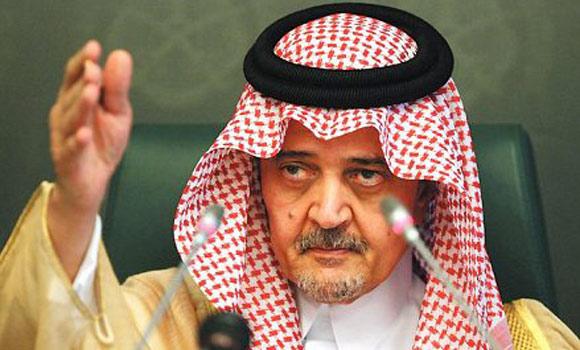
A colossus of Arab diplomacy, Prince Saud, 75, had carried on his hectic diplomatic schedule though years of a debilitating disease believed to be Parkinson’s.
Adel al-Jubeir, a career diplomat, replaced him as foreign minister in a far-ranging reshuffle carried out by King Salman bin Abdulaziz al-Saud in late April.
“Generations of American leaders and diplomats benefited from Prince Saud’s thoughtful perspective, charisma and poise, and diplomatic skill,” President Barack Obama said in a statement issued by the White House. “Prince Saud witnessed some of the most challenging periods in the region. At each turn, he advanced the goals of peace.”
The US embassy in Riyadh quoted John Kerry, US secretary of state, in a tweet saying: “Prince Saud was not only the oldest foreign minister, he was also among the wisest.”
Prince Saud brokered the end of the Lebanese civil war and presciently warned the US of the dangers of breaking up Iraqi state institutions when allied forces ousted Saddam Hussein.
An economics graduate of Princeton University, he served four kings over four decades, advising the royal family through diplomatic crises such as Iraq’s invasion of Kuwait, Palestinian intifadas against Israel, and Arab spring unrest that unseated Saudi allies including former Egyptian President Hosni Mubarak.
While Saudi foreign policy is the preserve of the monarch, Prince Saud’s experience and dynamism allowed the urbane, multilingual royal to exert influence on a string of kings.
The eldest son of the popular King Faisal, who sparked western ire by imposing an oil blockade on Israel’s allies in the 1973 Yom Kippur, Prince Saud managed to blend an Arab nationalist hue with close relations to the west.
Prince Saud brokered the end to the Lebanese civil war and presciently warned the US of the dangers of breaking up Iraqi state institutions when allied forces ousted Saddam Hussein
Appointed in 1975 after the murder of his father by a deranged nephew, Prince Saud took on the complicated task of positioning the conservative kingdom as a force for regional stability, leading efforts to manage the fall out from al-Qaeda’s 9/11 terrorist attacks.
Sheikh Abdullah bin Zayed Al Nahyan, his Emirati counterpart, related in a May article in the Saudi-owned press that Mikhail Gorbachev had said once if he had had Prince Saud “the Soviet Union would never have collapsed.”
Prince Saud was recovering from back surgery when the late King Abdullah died in January, prompting the ascension of King Salman to the throne.
In the maelstrom of political reshuffles and promotions that have followed this political transition, Prince Saud left government in late April.
Since his departure, Saudi Arabia under King Salman and his ambitious young son, Mohammed bin Salman, has backed a more interventionist foreign policy with military action.
Saudi Arabia, concerned about Iranian encroachment in the Arab world, in the last days of Prince Saud’s tenure launched an aerial campaign against Iran-allied rebels in neighbouring Yemen.
Riyadh is also concerned about US talks with Iran over its nuclear programme, with Arab capitals worried that an end to sanctions will further embolden Tehran to interfere in the Arab world.
Since then, hackers identifying themselves as Yemeni claim to have plundered tens of thousands of documents from Saudi foreign ministry servers.
The first tranche of these documents have been published online in the so-called “Saudi WikiLeaks” cables that have lifted the lid on aspects of Saudi foreign policy, including claims that Riyadh uses its petrodollar wealth to influence regional politics.
More of the embarrassing documents are expected to be released in the coming months. “Even after his death, his legacy is yet to be finalised,” said one Arab commentator.
FINANCIAL TIMES

Leave a Reply
You must be logged in to post a comment.